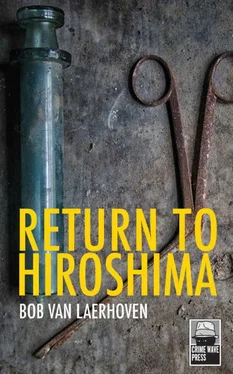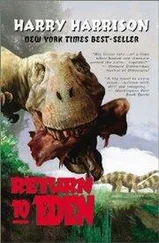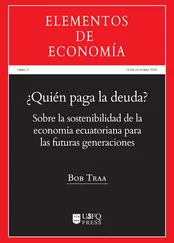I told the doctor that as a Muslim woman I didn’t want to have an abortion, but that my life would be in danger should my husband discover that the baby was a love child and that it was already growing in my belly when we met for the first time seven months ago. Dr Kanehari swallowed my story. I made him believe that I didn’t dare have myself admitted to a hospital for fear that my husband would get wind of it. The doctor asked me how I had managed to conceal my pregnancy up to now. I dished up a story about my husband being in Turkey for almost five months trying to save the family business and preparing for me to come and join him in the land of his birth. Dr Kanehari wanted to know what I planned to do with the baby. My answer was endearing in all its simplicity: my childless older sister had promised to take care of the baby as if it were her own. My story didn’t exactly hang together, but wasn’t that the same with every story and every life? In reality, Dr Kanehari was only interested in the substantial sum of money I was offering. We made an appointment for this evening.
Just before leaving the Dambara Centre for his private clinic, I inspected myself in the mirror. Because of my height, my swollen belly was barely visible, and in recent weeks I had also resorted to a corset. I had unremitting cramps and prayed that day that I would survive until nightfall.
I’m tough, I remind myself, as I scurry through the streets of Hiroshima, map in hand. I am strong, but on the verge of despair. The night is warm and humid. People glance at me furtively, at my height, my veil, but they continue on their way, in haste, absorbed by their own lives, their own pasts, their own plans for the future.
I am a pale spirit without a past.
The future is in my belly.
* * *
The lenses of Dr Kanehari’s glasses are dotted with a myriad of miniature suns, reflecting the lights behind him.
“A little jab,” says the doctor.
What? He had told me he was going to induce labour, but had said nothing about an injection.
I want to sit up.
Too late.
* * *
He’s sitting in the eagle’s nest with a book. That’s what I call his favourite place to read and think. On a clear day, you can see the outline of Nagasaki harbour from the top of the tallest apartment building on the island. Ships sail past from time to time. None of them put in to port. At night a flotilla of little boats brings us everything we need.
This was once the most densely populated place in the world. Our island is only four-hundred metres long and one-hundred and forty wide, but more than five thousand people used to live here.
It’s high tide. I stand at the old “saltwater fountain” and look left and right. This is the narrowest part of the island. In rough weather, this kind of weather, the waves sometimes break on the other side. I wait until the sea draws back and then run towards the dirty grey building in front of me. On the ground floor, daylight on Hashima always seems gloomy. The old apartment blocks of weathered reinforced concrete, moss green and slate grey, are built so close together that they block out the light. The entrance to the building is still littered with empty sake bottles, left behind by the last group of mine workers who departed the island twenty years ago.
Every time I enter the inner courtyard of the eagle’s nest my eyes are drawn to the empty windows and I’m reminded of the people who once lived here. It’s as if they left behind a terse sort of restlessness. Mainlanders say the place is haunted. Maybe they’re right. Sometimes you think you can hear voices, sighs perhaps, but in fact it’s the old buildings, crumbling. When people leave behind their deeds, their dreams, their desires in the house they once lived in, the walls begin to fester, the ceilings split and the windows crack. The buildings of Hashima seem to exude more darkness with every passing year, more menace, more loneliness. I climb the stairs, walk the corridors. Most of the doors to the tiny apartments have disappeared or are lying on the ground. In some of the flats there’s still evidence of the former inhabitants: a torn wall screen adorned with pastel drawings, an old 1950s white-framed tv, delicate teacups in a circle on the floor. Fragile, introverted signs in brutal surroundings. I look outside through the broken windows: besides the odd spot of green ivy here and there, the rest is grey. The sky is overcast, the colour of old ice. To reach the roof of the eagle’s nest I have to take an exterior staircase from the top floor. The sea is menacing today, whipped up, high waves crashing against the fortified walls. The pier at which our supply ships tie up at night is swamped with sea water. When I reach the roof I see him sitting there. He’s set up a screen against the wind. His armchair is surrounded by books. He’s not wearing western clothes. His black haori and hakama , the long, pleated culottes once worn by warriors, are impeccable.
“What are you reading?” He makes me nervous. That’s why I don’t beat about the bush. He forgives me most of the time. After all I’m only twelve.
“A book by a great English writer. Listen: No beast so fierce but knows some touch of pity, but I know none, therefore am no beast .”
He pinches my cheek with his long fingers.
“I would like…”
I fall silent. Although he’s in his late fifties, his hair is still shiny and black, pinned up in a topknot, classic samurai style. His long, gaunt, disproportioned face is expressionless, but his eyes, black as coal and gleaming fearsomely, gauge my mood. I had asked him months before why his eyes always had the same glassy expression. He told me it had to do with an overactive thyroid gland, one or other organ… I’ve forgotten where it’s located. He’s always slipping me little nuggets of knowledge, like treats to a dog.
“You would like to leave the island.”
I nod, avoid his gaze.
“I miss my mother, friends to play with. I want to go to school.”
“You learn more from me than any school can teach you.”
That’s not what it’s about. There are a thousand things I want to explain to him but can’t because they’re scattered inside me like the pieces of a puzzle and I can’t fit them together.
“I want to enjoy myself; live.”
He lithely unfolds his limbs. I am more than six foot tall, but he is head and shoulders taller. His frame is slightly crooked and his neck, his impossibly long neck… I can’t avoid staring at it. I’ve been spared the neck, at least to some extent.
“Live? Life is about going after your goal and conquering yourself.”
Your goal isn’t my goal , I want to say.
He takes my hand and pulls me towards the handrail. He points to the countryside. From this distance, Nagasaki harbour is virtually invisible. A few bulbous, dark shapes allude to its presence. Today there are no ships sailing by.
“You’re not an animal,” he says, “but people will treat you like one.”
“And you,” I blurt, without being aware of what I’m doing.
The hand on my shoulder feels heavier.
It takes a while before he answers.
“Me too. That’s why I know no pity.”
* * *
When I awake from the anaesthetic, with images of Hashima flowing out of me like water and making way for reality, I don’t see Dr Kanehari’s face, I see my father.
“Daughter.” His weighty voice sounds broken behind the surgical mask. He says something about the kiku , the divine chrysanthemum, symbol of the kikusui , the imperial bloodline, but because of the turmoil in my head and the nauseating lightness in my belly I find it hard to understand what he’s talking about.
Читать дальше












